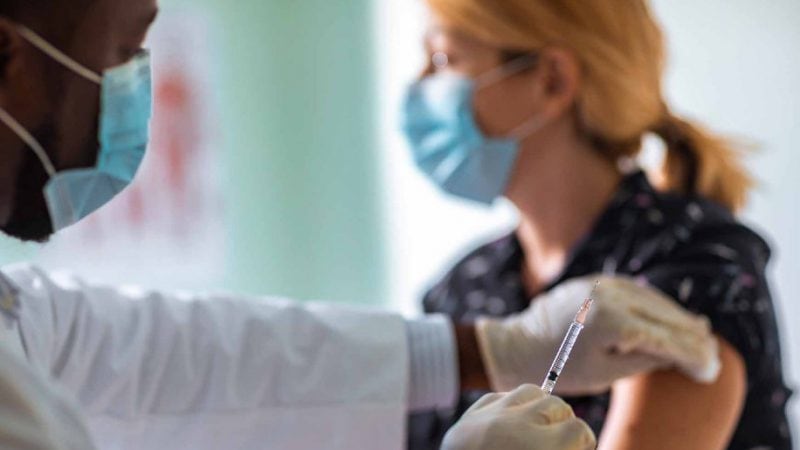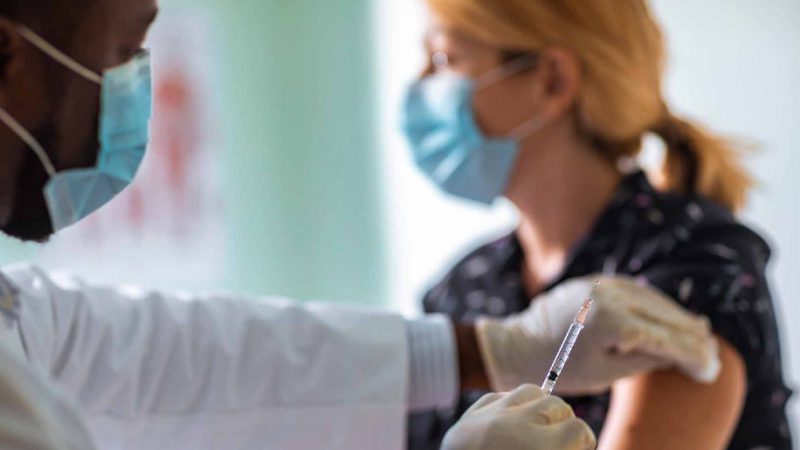Which Countries Accept Vaccinated Travelers?
Greece, Cyprus and Israel are destinations that are dropping travel restrictions for those who’ve received their shots
February 23, 2021

Greece, Cyprus and Israel have announced agreements that will allow citizens of the three countries to travel between them without restrictions, provided they have had COVID-19 vaccinations and can produce certificates proving that.
The deal between Greece and Israel was signed Feb. 8 by Greek prime minister Kyriakos Mitsotakis and Israeli prime minister Benjamin Netanyahu. A similar arrangement was signed by Netanyahu and Cypriot president Nicos Anastasiades on Feb. 14. That agreement is expected to take effect April 1.
“The resumption of unrestricted free movement is of great importance to Cyprus, which is a tourism-dependent country,” Anastasiades said.
As of March 1, vaccinated travelers entering Cyprus will no longer have to present a negative PCR test or undergo quarantine. This is not applicable, however, to all nationalities, with a categorization of countries based on risk of transmission. Countries currently in the ‘Green Category’ (which does not include the US) allow restriction-free entry.
Given that international arrivals fell 74 percent last year, wiping out $1.3 trillion in revenue, according to data from the UN World Tourism Organization, the idea of creating some kind of digital health passports to facilitate international travel are gaining traction.
Now that various vaccines against COVID-19 are rolling out around the world, it’s little wonder that a number of countries have decided to open their borders to vaccinated travelers.
In addition to the Israel-Cyprus-Greece deal, here is a round up other countries you can visit restriction-free once you have been vaccinated.
Estonia
Travelers will be able to enter the country provided they have an immunization passport, a copy of an immunization passport or a vaccination certificate in English, Estonian or Russian. The certificate should include personal details of the person affected, analysis methodology, analysis result, the place where the analysis was conducted, the time of the analysis, the name of the institution that conducted the analysis and the institution details.
Georgia
Beginning in February, foreign visitors who can provide evidence of completing two doses of any COVID-19 vaccine can enter Georgia without the need to self-isolate.
The Ministry of Foreign Affairs of Georgia says:
“Citizens of all countries, traveling by air from any country may enter Georgia if they present the document confirming the full course (two doses) of any COVID-19 vaccination at the border checkpoints of Georgia.”
Iceland
Vaccinated travelers will be able to bypass the country’s entry restrictions, which include COVID-19 testing and quarantine measures, starting May 1. Certificates can be in paper or electronic format, and the Directorate of Health has provided details on the requirements and accepted documents on its website.
The Icelandic Authorities are also accepting certificates regarding previous COVID-19 infection, enabling those with antibodies to be exempt from testing or quarantine requirements.
Lebanon
Quarantine won’t be in the cards for vaccinated travelers arriving from around the world. They will still need to provide a negative test which has been taken 96 hours before travel, followed by a second PCR test on arrival at Beirut International airport.
Poland
The Polish government has lifted its 10-day quarantine measure for those vaccinated against COVID-19. Travelers can already avoid the self-isolation period by providing a negative COVID-19 test certificate issued within 48 hours before you cross the Polish border – the country accepts both PCR and lateral flow antigen tests.
Romania
Romania has eased travel restrictions for vaccinated travelers, provided that they have received both doses of the vaccine and arrive in Romania more than ten days after the second dose. Travelers will need to show proof of vaccination, and will then no longer be expected to self-isolate.
Seychelles
Seychelles will permit entry to travelers who have received a complete dose of a vaccination at least two weeks before traveling. This means that if you got a vaccine that requires two doses, you must wait at least two weeks after you have received the final dose before traveling. Infants and children may not be required to be vaccinated but will need a negative PCR certificate.
Visitors must provide an authentic certificate as well as a negative PCR test result conducted within 72 hours of travel, in addition to flight and accommodation details before departure. Travelers can only stay at accommodations certified by the Public Health Authority, which are listed on the website. The website adds that vaccinated travelers will “be allowed free movement throughout their stay in Seychelles.”
The authorities have also stated that “once the majority of the adult population in Seychelles have been vaccinated, Seychelles will be open to all visitors from any part of the world whether they have been vaccinated or not. However they must still have a negative PCR test taken less than 72 hours prior to travel.”
Thailand
While travelers currently have to undergo a 15-day mandatory hotel quarantine when they arrive in Thailand, the country is looking to lift restrictions for those who have been vaccinated against COVID-19. Travelers will need to provide proof of both doses of the vaccine, as well as usual visa requirements. The ‘Welcome Back to Thailand Again’ plan is set to be unveiled in the third quarter of this year in a bid to boost tourism to the nation.
The island of Phuket is also planning to allow vaccinated travelers to bypass quarantine by October provided that the majority of its population is vaccinated. The “Phuket First October” proposal includes plans to vaccinate approximately 70 percent of the island’s population, funded by the private sector.




